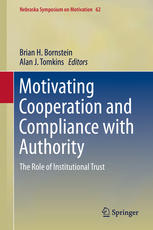

Most ebook files are in PDF format, so you can easily read them using various software such as Foxit Reader or directly on the Google Chrome browser.
Some ebook files are released by publishers in other formats such as .awz, .mobi, .epub, .fb2, etc. You may need to install specific software to read these formats on mobile/PC, such as Calibre.
Please read the tutorial at this link: https://ebookbell.com/faq
We offer FREE conversion to the popular formats you request; however, this may take some time. Therefore, right after payment, please email us, and we will try to provide the service as quickly as possible.
For some exceptional file formats or broken links (if any), please refrain from opening any disputes. Instead, email us first, and we will try to assist within a maximum of 6 hours.
EbookBell Team

0.0
0 reviewsThis volume explores the various ways in which trust is thought about and studied in contemporary society. In doing so, it aims to advance both theoretical and methodological perspectives on trust. Trust is an important topic in this series because it raises issues of both motivation and emotion. Specifically, notions of trust and fairness motivate individuals to behave in a manner they deem appropriate when responding to governmental authority. On the emotions-related side, individuals have emotional responses to institutions with authority over their lives, such as the city government or the Supreme Court, depending on whether they perceive the institutions as legitimate. The public’s trust and confidence in governmental institutions are frequently claimed as essential to the functioning of democracy), spawning considerable research and commentary. For those in the law and social sciences, the tendency is to focus on the criminal justice system in general and the courts in particular. However, other public institutions also need trust and confidence in order not only to promote democracy but also to assure effective governance, facilitate societal interactions, and optimize organizational productivity. Not surprisingly, therefore, important research and commentary is found in literatures that focus on issues ranging from social sciences to natural resources, from legislatures to executive branch agencies, from brick and mortar businesses to online commerce, from health and medicine to schools, from international development to terrorism, etc. This volume integrates these various approaches to trust from these disciplines, with the goal of fostering a truly interdisciplinary dialogue. By virtue of this interdisciplinary focus, the volume should have broad appeal for researchers and instructors in a variety of disciplines: psychology, sociology, political science, criminal justice, social justice practitioners, economics and other areas.